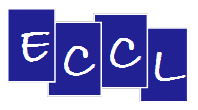OrganisationManagement: The development of this Action requires a clear management structure to ensure all the aims are met. To achieve this, the Action will be organised through a Management Committee (MC) and three WGs. Management Committee: The MC will comprise up to two representatives from each of the participating member countries as nominated by the corresponding countries COST National Coordinator. The Chair and the vice-Chair will be elected at the first MC meeting. The MC will meet not less than every 12 months and will be responsible for the overall direction of the Action. The MC is also responsible for the administration of Actionís budget and preparing the required monitoring reports. The MC will also act as final arbitrator in the event of any disagreements amongst partners as to resource allocation, project tasks and dissemination of results. The MC is responsible for the Actionís primary tasks, which are:
Working Groups: As a result of an MC decision, WG coordinators are designated during the First MC meeting. The WG coordinators are responsible for organising the research undertaken by the individual WGs in such a way that duplication of efforts is avoided and that utilisation of resources is maximised, and to ensure that the scientific aims of the Action are met. The coordinators will also act to strengthen and initiate contacts between the participating research groups, between the participating research groups and industrial organizations, and to obtain a comprehensive overview of the different activities planned. The WGs coordinators will report to the MC As outlined in section D of this Action, there are three partly overlapping theme oriented WGs envisioned: WG 1: Selective bond cleavage by electron induced dissociation, However, the MC will make the final decision on how to organize the WGs. This decision will be taken at the first MC meeting. Each WG will arrange its own prioritised collaborative research programme monitored and reviewed at annual WG discussion meetings, which will preferably be held with more than one WG participating to enhance information exchange between the WGs. The WGs will also initiate staff exchanges for conduct of joint research projects and organise training workshops for young researchers. On an annual basis, the WGs will report to the MC which reviews the major scientific tasks of every WG and the overall tasks of the Action. The MC will then reformulate the tasks and the means to achieve them as necessary. It is important for the success of this Action to be able to react quickly upon the receipt of new knowledge and development of new technology. Statement on gender balance: It is the declared intention of the participants of this Action to promote equal opportunities for female and male participants to influence the organisation and decision making of the Action. |
Last updated: 28th September 2007


